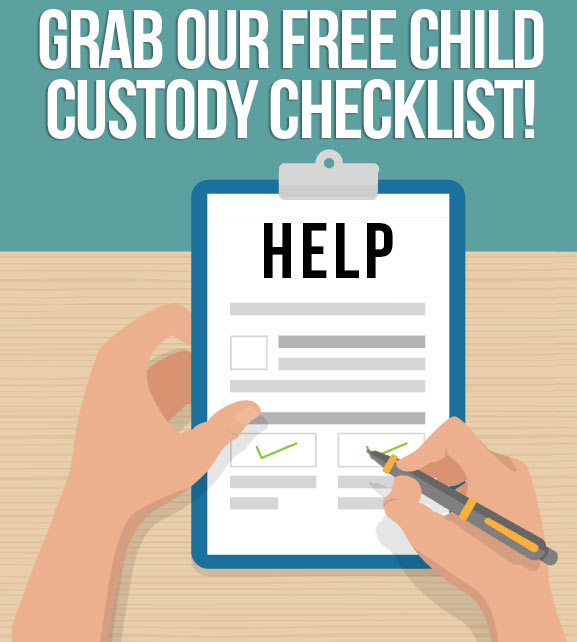What You Should Know About Family Court

Your divorce and/or custody has been set for trial. You can feel the panic setting in. How will you afford a lawyer for the family court trial procedure? You could lose your children, your money and maybe your home if you don’t prepare and have your ducks in a row…but you cant possibly afford a lawyer (maybe you can –subject of a different article). Regardless, there is no need to panic. Even if you cant afford a family law attorney, you can still prepare your case so that you can show up to your family law trial confident and you can win. We prepared this article to assist those of you preparing for your family law trial that might have to handle the case on your own.
1. EVIDENCE
Despite what most people think or see on TV, you cant just show up to trial and hand the judge a bunch of documents or have “surprise” witnesses. The beauty of our civil litigation system is that each side gets all of the evidence well in advance of trial. This is what helps cases settle. So, make sure you have given all of your evidence to the other side, well in advance of your trial date. Also make sure that you have prepared a list of the witnesses you will call for trial long before your trial date. Include your witnesses’ full name, address, telephone number and a brief statement of what that witness is going to tell the judge. Make sure this list is filed with the Court and you have provided a copy to the other side. If you discover a new witness or piece of evidence before the family court trial procedure, make sure you update your witness list and your evidence before trial. Most judges will not allow you to ambush the other side so be sure to have everything disclosed well in advance.
2. FINANCIAL DISCLOSURE FORMS
Be sure that you have an updated financial disclosure form on file with the Court at least a week before your trial. You will want to include your last three paystubs with the disclosure. Just like with your evidence, be sure that you provide a copy to the other side before trial.
3. PRETRIAL MEMORANDUM
Every judge in our courthouse requires both sides to file a pretrial memorandum. This is a brief statement about the facts of the case, the people involved, the issues that the Court needs to resolve and any issues that you and the other side have resolved ahead of time. Most judges have sample forms available for litigants. If you cant find a sample on-line, you might want to call the Judge’s assistant and ask if the judge has a sample form you can use. Again, make sure you file this document and provide a copy to the other side.
4. GETTING YOUR WITNESSES TO COURT
Be sure that the people you have identified on your witness list are at family Court on the day and at the time of trial. Judges usually don’t continue child custody trials if you have a witness that cant be there that day or needs to come later in the day. Bottom line – the judge isn’t going to wait around for your witnesses. Therefore, it is important that you arrange with your witnesses in advance to be at family Court, ready to go, on the day and time of trial. Some witnesses may need to be subpoenaed so make sure you get your subpoenas served on your witnesses well in advance of trial. Also make sure to file copies of your subpoenas with the Court. That way, if you have served a witness subpoena and the witness doesn’t come, the Court could hold the witness in contempt or agree to allow the witness to testify through alternative means. Generally, a judge will not take testimony by way of affidavits. Your witness must be present, at Court to give a direct testimony.
5. EXHIBIT NOTEBOOKS
Any documents you want to present at the time of trial should be neatly organized, paginated and labeled in a notebook to be presented at trial. You will need to deliver 2 notebooks to the Court at least a few days before trial. One copy is for the judge the other copy is for the Court Clerk. You will also need to provide one copy of your exhibit book to the other side before the trial date. Finally, you should bring 2 copies with you the day of trial. One copy will be your copy to use during trial and the other copy will be at the witness stand for witnesses to look at.
6. PREPARE AN OUTLINE OF QUESTIONS
In thinking about your case, you should have an idea of what it is you are trying to prove, what each witness will say to the judge and what each piece of evidence you want to give the judge will help you show. In thinking through your case, you should make a list of witness questions you want to ask, key points you want to make and how you will use each witness or document to prove your points. Keep this list handy and refer to it often during your trial.
7. KNOW ABOUT THE LAW
It is helpful before trial to know a little bit about the law of each point you are trying to prove. If your case involves alimony, you should know the basics of what you need to convince the judge why alimony should, or should not, be awarded. If your case involves custody, you should know the basics of what the judge is looking for to prove that what you want is in your child’s best interests. There are plenty of articles, papers and other resources available to help you get an idea of what your burden of proof will be at trial. If you aren’t sure, it might be worth it to consult with an attorney to get some help.
8. A QUICK WORD ABOUT OPENING STATEMENTS, CLOSING STATEMENTS AND OBJECTIONS
You will have a chance to make an opening statement, closing statement and objections during your trial. Keep these brief. Don’t argue with the judge or the other side. In the opening statement, be prepared to tell the judge why they should rule in your favor and what evidence or witnesses you will present to support your claims. During objections, keep in mind that the rules of evidence will apply. If you object to a question, document or witness, be sure to keep the objection short but be prepared to explain why you object. Don’t argue with the judge if your objection is overruled. In a closing argument, be sure to summarize the case, quickly. Again, tell the judge what it is you want and why you think the evidence supports the judge ruling in your favor.
9. FINAL THOUGHTS
Be on time. Be professional. Dress nice. Don’t argue. There really isn’t much more to say than that.
Trial can seem overwhelming but we hope with the tips presented here, you feel confident and prepared. You can win your case on your own. If you get stuck, or feel like you need a lawyer on your side, we can help. Call our offices today at (702) 433-2889 for a consultation about your divorce trial or fill out our on-line form for more information.
 give
give

Frequently Asked Questions
What is the Family Court Trial procedure?
The Family Court Trial procedure involves evidence presentation, witness testimonies, opening and closing statements, and objections. Each party presents their case in an organized and systematic manner.
How should I prepare for a Family Court Trial?
Preparation includes collecting and sharing all your evidence, updating your financial disclosure forms, preparing a pretrial memorandum, ensuring your witnesses will be present in court, and familiarizing yourself with the relevant laws.
What if I can’t afford a family law attorney?
You can still prepare your case by understanding court procedures, organizing your evidence, preparing your witnesses and understanding the basics of the law pertaining to your case.
How should I behave in court?
Be on time, dress appropriately, be professional, and avoid arguing with the judge or the opposing side. Proper court etiquette is essential for a positive impression.
What should I do if new evidence or witnesses arise before the trial?
Update your witness list and your evidence before the trial. Judges typically do not allow surprises, so disclose everything well in advance.

Glossary
Family Court Trial: A legal proceeding in a family court where disputes related to family matters such as divorce, custody, alimony, etc., are resolved.
Civil Litigation System: The process in the court system that handles lawsuits between individuals or organizations that are not criminal in nature.
Witness: A person who gives testimony about what they saw, heard, or know in a court case.
Evidence: Information used in legal proceedings to prove or disprove a fact. This could include documents, physical objects, or testimony from witnesses.
Financial Disclosure Form: A document that provides detailed information about an individual’s financial situation. It is often used in family court trials to determine alimony or child support payments.
Pretrial Memorandum: A document that outlines the facts of the case, the people involved, and the issues that need to be resolved. It is filed by both sides in a court case before the trial begins.
Subpoena: A legal document that orders a person to appear in court to give testimony or produce documents or other evidence.
Exhibit Notebook: A notebook containing all the documents and evidence that a party plans to present at trial. It should be organized, labeled, and paginated for easy reference.
Opening Statement: The initial statement made by each side in a trial, outlining the case they intend to present.
Closing Statement: The final statement made by each side in a trial, summarizing their case after all evidence has been presented.
Objection: A formal protest raised in court during a trial to disallow a witness’s testimony or other evidence which violates the rules of evidence or other procedural law.
Alimony: A financial support paid to a spouse after separation or divorce.
Custody: Legal and practical relationship between a parent and a child, which includes caring for and making decisions for the child.
Burden of Proof: The obligation to prove one’s assertions in a court of law.
Further Reading
Molly Rosenblum, Esq., our distinguished lead attorney, is not only committed to providing top-notch legal representation but has also developed a suite of valuable resources to assist you in various aspects of family law. These resources, available on the Rosenblum Law website, are meticulously curated to offer guidance and information, ensuring you are well-equipped to navigate the complexities of family law in your time of need:
Las Vegas Family Law Attorneys: A comprehensive guide offering insights and legal expertise specific to family law in Las Vegas, ensuring your legal needs are met with the highest standard of care. Explore the guide.
Family Court Las Vegas: Navigate the intricacies of the family court in Las Vegas with this detailed resource, designed to simplify and demystify the legal process. Learn more about the family court.
Common Law Marriage in Nevada: Understand the legal standing and implications of common law marriage in Nevada, an important aspect for couples living together. Read about common law marriage.
Name Change Las Vegas: Find out the legal process and requirements for officially changing your name in Las Vegas, whether due to marriage, divorce, or personal choice. Start your name change process.
Nevada Power of Attorney: Learn how to designate a power of attorney in Nevada, a critical step in managing your affairs during unforeseen circumstances. Understand the power of attorney.
How to File a Motion in Family Court: A step-by-step guide to preparing and filing a motion in family court, ensuring your legal motions are well-structured and effectively presented. Learn to file a motion.
Family Court Mediation: Discover the benefits and process of mediation in family court, an alternative to traditional litigation that promotes amicable resolutions. Explore mediation options.
Unbundled Attorney: Understand how unbundled legal services can provide you with tailored legal support that meets your specific needs, often at a lower cost. Learn about unbundled services.
Nevada Adoption: Navigate the adoption process in Nevada with this resource, providing you with the necessary information and steps to expand your family. Read about Nevada adoption.
Molly Rosenblum, Esq. aims to empower you with these resources, ensuring you have access to the knowledge and tools essential for navigating the intricate landscape of family law. We encourage you to leverage these resources as you embark on or navigate through your legal journey.

Offsite Resources You May Find Helpful
Here are some resources that can provide more information and support for those preparing to take a family law case to trial:
American Bar Association (ABA) – Family Law Section: The ABA’s Family Law Section provides resources on divorce, child custody, and other related topics.
National Family Law Trial Institute: An intensive, hands-on trial skills training program designed to improve advocacy skills in the family law courtroom.
FindLaw – Family Law: FindLaw provides free legal information, a lawyer directory, and other resources related to family law.
Avvo: Avvo offers a Q&A forum where users can ask legal questions and get answers from lawyers, as well as a directory of lawyers by specialty.
Justia – Family Law: Justia offers free case law, codes, regulations and legal information for lawyers, business, students and consumers worldwide.
Our Family Wizard: This co-parenting tool can help reduce conflict and improve communication, which can be essential for managing custody arrangements and preparing for a family law case trial.

What's Next?
Are you looking for a Las Vegas child custody attorney in Las Vegas?
Look no further than The Rosenblum Allen Law Firm.
We have years of experience, and we specialize in child custody law.
Our team will listen to your story and fight tirelessly to ensure the best possible outcome for you and your family.
At The Rosenblum Allen Law Firm, our goal is to get results so everyone involved can go on with their lives as best they can–no matter what happens!
So if you’re searching for an experienced Child Custody Attorney in Las Vegas who puts your needs first, call (702) 433-2889 today!
Let’s discuss how we can help get everything back on track ASAP!
The Reason You Haven't Hired A Child Custody Attorney Yet
We’re ready to fight for the rights of your family if you hire us. We’re waiting to jump into action on the behalf of your family.




